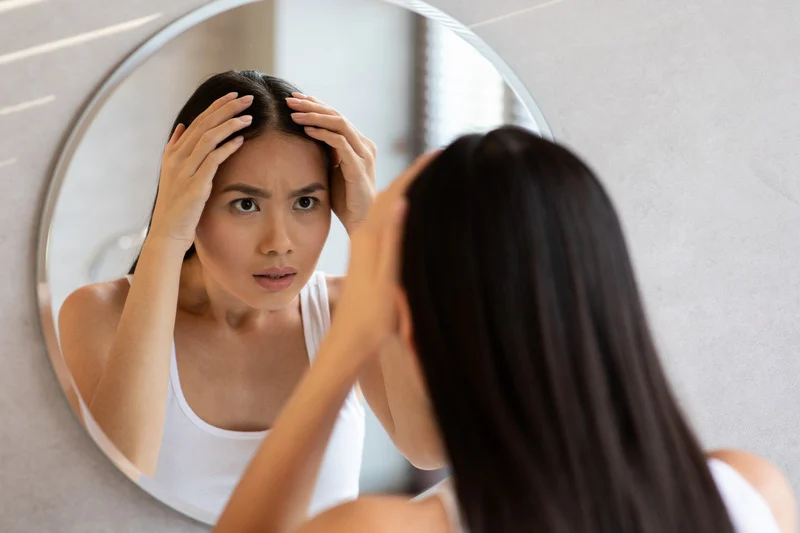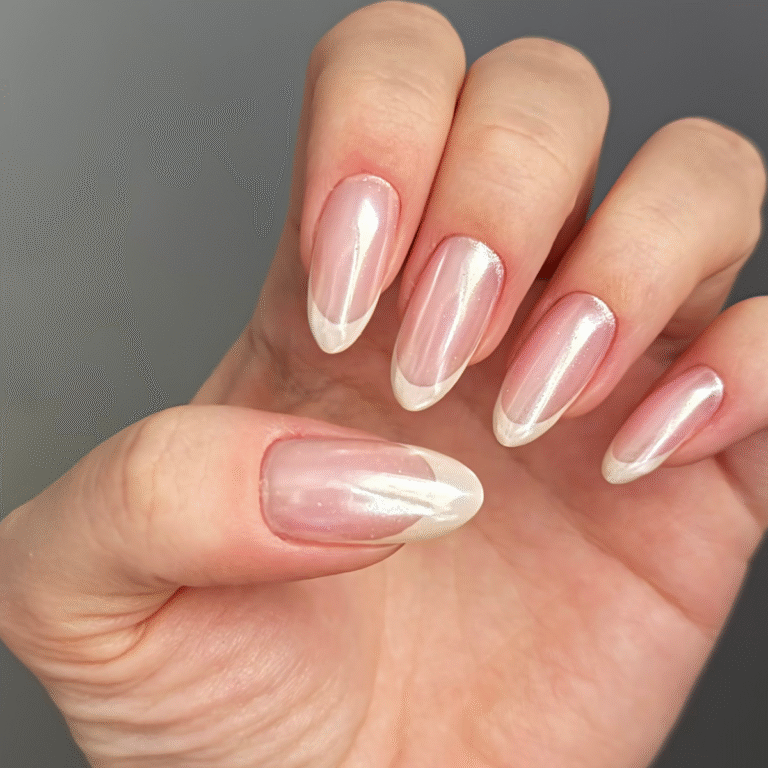
Welcoming your little one is a whirlwind of joy, love, and… well, sometimes hair falling out in clumps. If you’re noticing more hair in your brush or shower drain than usual postpartum, know that you’re not alone. This shedding is largely hormonal and typically temporary. As a breastfeeding mom, you’re likely looking for gentle, natural ways to support your scalp and hair health without compromising your baby’s well-being.
Your Important First Step
Before you introduce any new product, even natural ones, while breastfeeding, it’s always wise to do a patch test on your skin. And if you have any concerns, a quick chat with your doctor or a lactation consultant can offer peace of mind.
Here are 9 natural products you might consider incorporating into your routine to help nurture your hair and scalp during this delicate postpartum phase:
1. Coconut Oil (Organic, Extra Virgin)
- Why it might help you: This nourishing oil is fantastic for moisturizing your hair and scalp. It can help reduce protein loss from the hair shaft, making your strands feel stronger and less prone to breakage.
- How you can use it safely: Gently warm a small amount and massage it into your scalp and through your hair. You can leave it on for about 30 minutes as a pre-shampoo treatment. A tiny bit can also tame frizz on your ends.
- What you might notice: Your hair may feel softer and more conditioned, and your scalp less dry.
2. Aloe Vera Gel (Pure, straight from the plant or 100% pure store-bought)
- Why it might help you: Aloe vera is incredibly soothing and hydrating. It can help calm an itchy or irritated scalp, which sometimes accompanies postpartum hormonal shifts, and gently cleanse follicles.
- How you can use it safely: Apply pure aloe vera gel directly to your scalp. Massage it in gently and let it sit for 20-30 minutes before you rinse it out.
- What you might notice: A calmer, more comfortable scalp, and hair that feels more hydrated at the roots.
3. Rosemary Essential Oil (Highly Diluted)
- Why it might help you: Rosemary oil is often praised for its potential to stimulate scalp circulation, which is beneficial for healthy hair follicle function.
- How you can use it safely: Extreme caution and significant dilution are key with essential oils when breastfeeding. If you choose to use it, add just 1-2 drops of rosemary essential oil to 2 tablespoons of a carrier oil (like coconut or jojoba). Massage this mixture only into your scalp, avoiding areas where your baby might frequently nuzzle. Use sparingly and infrequently.
- What you might notice: Your scalp might feel invigorated. Over time, some find it supports new hair appearing.
4. Lavender Essential Oil (Highly Diluted)
- Why it might help you: Known for its calming properties, lavender can be soothing for your scalp. The gentle aroma can also be a small moment of relaxation for you.
- How you can use it safely: Similar to rosemary, dilute heavily – 1-2 drops in 2 tablespoons of carrier oil. Apply sparingly to your scalp.
- What you might notice: A soothed scalp, and perhaps a moment of calm during your routine.
5. Jojoba Oil
- Why it might help you: Jojoba oil closely mimics your skin’s natural sebum. This means it can help balance oil production on your scalp, providing moisture without feeling overly greasy.
- How you can use it safely: You can use jojoba oil on its own for a gentle scalp massage or as a carrier oil if you’re using a tiny, well-diluted amount of an essential oil.
- What you might notice: A more balanced scalp – not too dry, not too oily.
6. Fenugreek Seed (Methi) Paste or Rinse
- Why it might help you: These seeds are a traditional remedy for hair strength, packed with proteins and compounds thought to support hair health. They are also very conditioning.
- How you can use it safely: Soak a couple of tablespoons of fenugreek seeds in water overnight. You can then grind them into a paste to apply to your scalp and hair for about 30 minutes before rinsing thoroughly. Alternatively, just use the soak water as a gentle final hair rinse.
- What you might notice: Your hair may feel noticeably softer, stronger, and less prone to tangling.
7. Amla (Indian Gooseberry) Powder or Oil
- Why it might help you: Rich in Vitamin C and antioxidants, amla is revered in Ayurvedic traditions for strengthening hair follicles and promoting overall scalp vitality.
- How you can use it safely: You can mix amla powder with water or aloe vera gel to create a gentle scalp mask. Alternatively, look for a pure amla-infused oil for light scalp massages.
- What you might notice: Your hair might gain a healthy shine and feel more resilient.
8. Rice Water Rinse
- Why it might help you: The cloudy water left after rinsing rice contains inositol, a carbohydrate that can help repair and strengthen hair. It’s a very gentle option.
- How you can use it safely: After shampooing, you can pour cooled rice water (the water from rinsing rice before cooking) over your hair and scalp. Gently massage it in, leave for 5-10 minutes, then rinse lightly with plain water.
- What you might notice: Your hair may feel smoother, stronger, and detangle more easily, which can mean less hair lost during combing.
9. Oatmeal Scalp Soothe (Colloidal Oatmeal)
- Why it might help you: If postpartum hormonal changes have left your scalp feeling sensitive, itchy, or irritated, colloidal oatmeal is wonderfully calming and anti-inflammatory. A happy scalp is a better foundation for healthy hair.
- How you can use it safely: Mix finely ground colloidal oatmeal (or blend plain rolled oats into a very fine powder yourself) with warm water to create a milky liquid. Gently apply this to your scalp, leave for 10-15 minutes, and then rinse thoroughly.
- What you might notice: Relief from scalp itchiness and irritation.
Beyond Products: Your Holistic Approach to Postpartum Hair Care
Remember, these topical applications are just one piece of the puzzle. To best support your hair during this time, also consider:
- Nourishing Your Body: Focus on a balanced diet rich in iron, protein, biotin (check with your doctor about supplementation if needed), omega-3 fatty acids, and drink plenty of water. What you eat directly impacts your hair health.
- Gentle Hair Practices: Be kind to your hair. Avoid tight hairstyles that pull on the roots, minimize heat styling, and use a wide-tooth comb, especially on wet hair, to reduce breakage.
- Patience and Self-Care: Postpartum hair shedding is usually temporary. Try to be patient with your body as it readjusts. Prioritize rest when you can (easier said than done, we know!) and find small moments for self-care.
This phase of hair change will pass. By using gentle, natural support and caring for yourself holistically, you can help your hair and scalp feel their best while you focus on the beautiful journey of motherhood.

